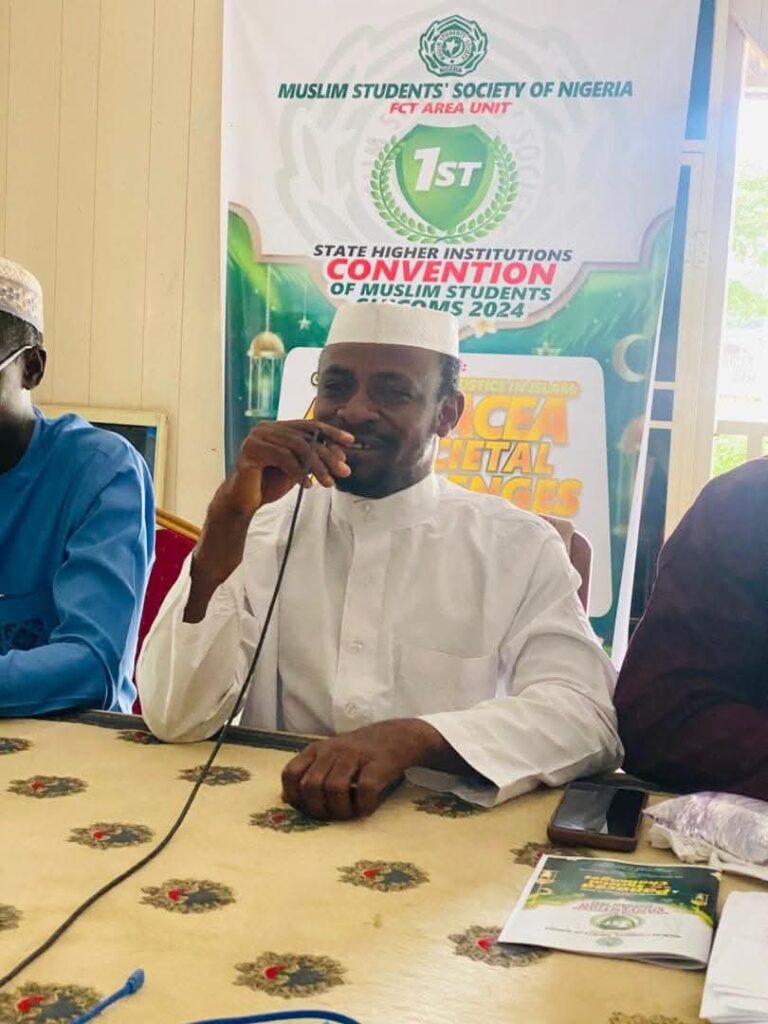By Ibrahim Babangida Lawal
13th May, 2025
The Muslim Students’ Society of Nigeria (MSSN), Federal Capital Territory (FCT) Area Unit, has vehemently opposed the nomination of Mr. Solomon Adodo, a native of Benue State, as the representative of the FCT in the newly established North Central Development Commission (NCDC).
In a statement jointly signed by the Ameer of the MSSN FCT Area Unit, Barr. Adam Ahmad Adam, and the Public Relations Officer I, Ibrahim Babangida Lawal, the group described the nomination as a “flagrant disregard for the sacrosanct principle of indigenous representation.”
“The position in question must be reserved for a bona fide indigene of the FCT,” the statement read. “We are not just concerned citizens; we are stakeholders insisting on fairness and equity in the allocation of strategic roles that shape the future of our communities.”
The MSSN emphasized that every state and territory in the North Central geopolitical zone, including the FCT, deserves authentic representation by individuals who are deeply rooted in their communities and fully understand their unique socio-economic realities. The statement criticized the federal appointment as a move that risks alienating the FCT’s indigenous population from developmental discourse and governance.
“This is not merely a political issue,” the MSSN noted. “It is a matter of identity, justice, and inclusion. The peculiar interests of the FCT people can only be truly represented by someone who lives those realities daily.”
The society argued that the decision to appoint a non-indigene undermines the principles of equitable governance and could set a troubling precedent for future appointments.
This position by the MSSN FCT aligns with a growing wave of civil advocacy across the country, calling for transparency, inclusivity, and local representation in national development bodies. The group urged relevant authorities to revisit and review the nomination in accordance with constitutional ideals and the cultural and demographic realities of each constituent part of Nigeria, especially the Federal Capital Territory.
“We call on stakeholders, traditional leaders, civil society, and well-meaning Nigerians to join in defending indigenous rights,” the MSSN concluded. “The future of inclusive governance depends on our collective insistence on justice and representative democracy.”
